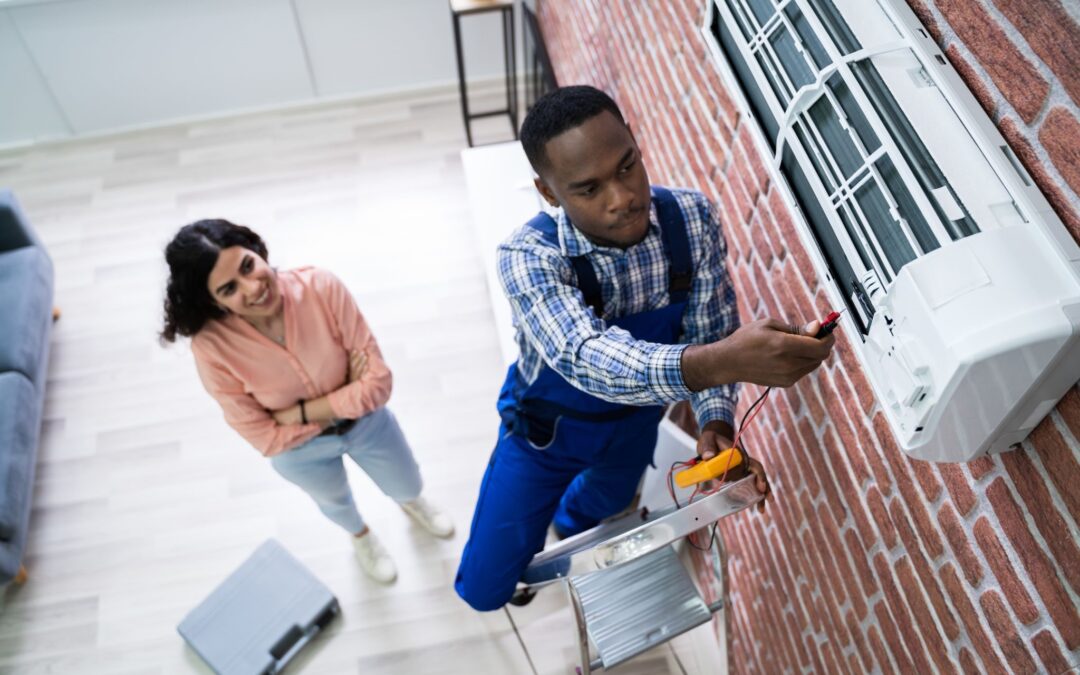The warning signs come in many ways, and we dread them every time. The airflow in your house begins decreasing, strange noises come from your HVAC unit, and the energy bill keeps climbing, even when your thermostat habits haven’t changed. There might be foul smells, an overabundance of dust, or just disappointment when you can’t get the house to stay at a comfortable temperature. These are all collective signs that something could be wrong with your heating or cooling system, but is the answer a repair or a full replacement?
Here are four things to consider before contacting a professional about the safest and most effective way to solve your HVAC problems.
Time
How long have you had your unit? Is it brand new, or was it installed when you received the property? Most HVAC systems last 10–15 years. If it’s been more than a decade since you’ve needed large repairs on your HVAC, even with regular maintenance, investing in a replacement may be worth planning for instead of putting money into future repairs that don’t permanently fix the problem. Plus, the older an HVAC system gets, the more it can become a fire or carbon monoxide hazard if the unit is neglected over the years. For safety’s sake, have a full investigation performed on your system before making any assumptions. If the unit is showing or smelling any signs of becoming a hazard, emergency service should be scheduled immediately.
Cost
Consider how much money your current system originally cost and how much you’ve invested in maintaining it since. If your unit hasn’t quite reached the 10–20 year mark on use, and you’ve been routinely servicing it, repair costs may be justified, especially if it still has plenty of mileage left. However, if you’re trying to save money on maintenance but make up for that cost with repeatedly expensive repairs on an aged system, looking into a more technologically advanced model may be the more worthy investment.
Design
The design of your system is also important to consider. Find out if your indoor and outdoor HVAC systems match. HVAC systems are made to work symbiotically with their matching unit to increase dependability and overall efficiency. Repairing the problem unit to keep the matching system together, or replacing both units at the same time when needed, makes for a better functioning HVAC system. You should also consider how technologically advanced your unit is. Would features that give you more control over temperature zoning in your entire building benefit you, or do you just need the consistent function of one unit in a single space?
If your unit is still designed to use Freon as its cooling refrigerant, this may also be a sign to upgrade. The U.S. Federal government’s Environmental Protection Agency (EPA) restricted the production and import of Freon as of January 1, 2020. This was due to R-22, its primary component, being considered one of the greenhouse gases that contributes to damage of the Earth’s ozone layers. Getting a new unit that utilizes R401A refrigerant gets you ahead of the game for future repairs and maintenance needs.
Environment Needs
Another financial factor to consider is the natural climate of the area. If your natural weather patterns aren’t unbearably hot or frigid, focusing on the repair first may be the financial ideal. However, if you suffer rising temperatures in a year-round desert climate, or get below freezing temperatures during winter, a new system could be the preferred alternative to suffering without proper heat or cooling during the least convenient times of the year.
You might also want to consider how long you’ll be staying in your current home or commercial property. Will you still be in that location for the length of time it will take you to receive an ROI for the price of a new system installation? If so, that investment is worthwhile. If not, reviewing the system’s conditions and repair options may be preferred.
If you’re still on the fence about your HVAC repair or replacement, check our website for more information to help you make the right decision. You can also call us to find out how one of our licensed and insured technicians might be able to fix your problem.


Recent Comments